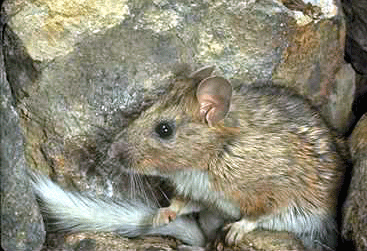
PlaguePlague is a rare but serious disease that humans can contract from infected rodents or their fleas. Plague is most commonly transmitted by the bite of an infected flea. Occasionally, it is transmitted through contact with tissues from an infected animal, or rarely through contact with infectious respiratory droplets, from coughing or sneezing. Domestic cats and sometimes dogs are susceptible to plague infection and can transmit the disease to their owners if not treated promptly. Plague is widespread in much of California, including in the Sierra Nevada mountains and foothills. In a typical year, the Centers for Disease Control and Prevention (CDC) reports about ten cases of plague in humans per year in the western United States. However, during 2015, 16 human plague cases were reported. There are three main forms of plague: bubonic, septicemic, and pneumonic. Generally, the initial symptoms of plague develop two to six days after exposure and include nausea, vomiting, fever, chills, muscle aches, headache, and weakness. Bubonic plague, the most common form, is characterized by swollen and tender lymph nodes (called "buboes") in the groin, neck, or armpit. In septicemic plague, plague bacteria infect the bloodstream, causing high fever, fatigue, weakness, and bleeding disorders. Skin and other tissues, particularly on the fingers, toes, and/or nose, may turn back and die. Pneumonic plague is an infection of the lungs that can follow bubonic or septicemic plague, or occur directly from inhalation of plague bacteria. Patients with pneumonic plague have difficulty breathing, develop a cough, and may spit up blood-tinged saliva. Pneumonic plague is the only form that can be spread for person to person. People who develop these symptoms should seek immediate medical attention and notify their healthcare provider that they have been camping or out in the wilderness and have been exposed to rodents and fleas. Public health officials and park staff work together on a regular surveillance program to monitor rodent populations in the park for signs of plague infection or the presence of plague-carrying fleas. The park also has signs posted in campgrounds, visitor center, and bulletin boards to increase awareness of plague and steps to minimize exposure to rodents and their fleas. Taking simple precautions, such as never feeding or touching wild animals (alive or dead), wearing insect repellent with 30 percent DEET, and not camping, resting, or preparing food near rodent burrows, can significantly reduce the risk of exposure. If you have handled a wild animal or think you may have been bitten by fleas and are showing symptoms of plague contact a healthcare provider and inform them that you may have been exposed to plague. If you see any sick or dead wild animals, please report them to Lava Beds staff. The California Department of Public Health and Centers for Disease Control and Prevention websites contain important information that can help you recognize and and reduce your risk of contracting of plague. How can I reduce my risk of exposure to plague? Public health officials recommend the following:
|
Last updated: January 28, 2024
